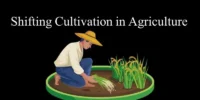Benefits of Organic Farming for Soil and Crops
Published: 17 Mar 2025

What exactly are the benefits of organic farming for soil and crops? It’s easy to get lost in all the information out there. Is organic farming really better for soil health? Will it actually produce better crops, or is it just a trend? With so many farming methods to choose from, it’s hard to know what’s truly best. Let’s break down the facts and uncover how organic farming can make a lasting impact on your soil and crops. In today’s world, where sustainability is no longer just a buzzword but a necessity, organic farming has emerged as one of the most impactful ways to cultivate crops and nurture our soil.
So, guys, without wasting time, let’s jump into the article to learn Benefits of Organic Farming for Soil and Crops.
1. Improved Soil Health
Organic farming is first and foremost about nourishing the soil. By using natural fertilizers like compost, manure, and cover crops, organic farmers enhance soil fertility and structure. Over time, this improves soil texture, boosts water retention, and encourages healthy microbial activity.
- Stronger Soil Structure: Organic farming avoids the use of harmful chemicals that can degrade soil structure, ensuring the soil remains rich in nutrients and well-aerated for root growth.
- Increased Soil Fertility: Organic matter such as compost or mulch replenishes soil nutrients, making it fertile and capable of supporting healthy crops year after year.
- Microbial Diversity: Organic methods encourage beneficial microorganisms like earthworms and bacteria, which help break down organic matter into valuable nutrients for plants.
| 2. Better Crop Yield and Quality |
|---|
|
While many believe that organic farming leads to lower yields, research shows that, over time, organic methods can match and even exceed conventional farming yields—especially in drought-prone or nutrient-poor soils.
|
3. Reduced Chemical Exposure
One of the most powerful benefits of organic farming is the absence of harmful pesticides, herbicides, and synthetic fertilizers. This has a direct positive impact on both human health and the environment.

- Healthier Produce: By choosing organic crops, you minimize your exposure to potentially harmful chemicals often found in conventionally grown produce. This is particularly crucial for vulnerable groups like children and pregnant women.
- Safer for Pollinators: Organic farming promotes biodiversity by protecting pollinators such as bees and butterflies. These essential species are not harmed by toxic pesticides, which helps ensure pollination for future crops.
- Cleaner Water: Organic farming reduces the runoff of harmful chemicals into nearby water sources, promoting cleaner drinking water and healthier aquatic ecosystems.
4. Enhanced Biodiversity
Organic farms tend to foster a rich diversity of life, both in terms of plants and animals. By avoiding monocropping and encouraging crop rotation, organic farming supports diverse ecosystems that can thrive alongside agricultural activities.
- Pollinator-Friendly: Organic farms often create habitats for bees, butterflies, and other pollinators by growing diverse crops and maintaining areas of natural vegetation.
- Wildlife Habitats: Organic practices create a safe haven for wildlife, including birds, insects, and beneficial predators, which can naturally control pests and enrich the ecosystem.
5. Environmental Sustainability
Organic farming is one of the most environmentally sustainable practices available today. It minimizes environmental degradation by reducing soil erosion, enhancing water conservation, and mitigating climate change.

- Soil Conservation: Organic farming practices like crop rotation, mulching, and minimal tilling help prevent soil erosion, ensuring that the land remains fertile and viable for future generations.
- Lower Carbon Footprint: Organic farming produces fewer greenhouse gases than conventional farming, contributing to a reduction in overall carbon emissions.
- Water Conservation: Organic farming practices enhance the soil’s ability to retain water, which is especially important in regions prone to drought. This means crops are more resilient during dry spells.
6. A Healthier Future for Farmers
Organic farming is not only beneficial for the land and the consumer but also for the farmers themselves. By reducing their exposure to harmful chemicals, organic farmers experience healthier working conditions and a lower risk of pesticide-related illnesses.
- Safer Work Environment: Organic farmers are less exposed to toxic chemicals, which reduces health risks associated with pesticide and herbicide use.
- Sustainable Livelihood: Organic farming offers long-term economic benefits through higher demand for organic products, access to niche markets, and potential premium pricing.
7. The Growing Demand for Organic Products
Consumers worldwide are becoming more conscious of their environmental footprint and health. The rising demand for organic products presents a massive opportunity for farmers to transition to more sustainable practices, ensuring that the demand for organic crops will continue to grow.
- Consumer Preference: Organic foods are seen as healthier, safer, and more environmentally friendly. As a result, there is a growing market for organic products, giving farmers a lucrative business opportunity.
- Market Expansion: With the increase in health-conscious consumers, organic farming is not just a trend but a shift in the way people approach food production and consumption.
FAQs about Internet
Here are some of the most frequently asked questions about the Benefits of Organic Farming for Soil and Crops.
Answer: Organic farming improves soil health by replenishing nutrients with compost, manure, and cover crops. These practices enhance soil structure, increase water retention, and promote healthy microbial activity, making the soil more fertile and resilient in the long run.
Answer: Organic farming boosts crop quality by avoiding synthetic chemicals and pesticides, which results in healthier, more nutrient-rich produce. Over time, organic farming practices can increase crop yield through improved soil health, natural pest resistance, and stronger plant resilience.
Answer: Organic farming reduces environmental impact by avoiding harmful pesticides and chemicals that contaminate soil and water. It promotes biodiversity, conserves water, and reduces greenhouse gas emissions, making it a sustainable choice for both the ecosystem and future generations.
Answer: Organic farming supports human health by providing food free from harmful pesticides, herbicides, and synthetic chemicals. Organic produce is richer in essential nutrients like antioxidants, vitamins, and minerals, which contribute to better overall health and well-being.
Answer: While organic farming may require a transition period, it can be more profitable in the long run. Organic products typically command higher prices in the market, and farmers can reduce input costs by avoiding expensive synthetic fertilizers and pesticides, making organic farming a more sustainable economic choice.
Conclusion
Organic farming isn’t just a method of cultivation; it’s a movement toward a healthier planet, healthier people, and a thriving future. By nurturing the soil with organic practices, we are giving our crops the best start in life. The benefits of organic farming go beyond the farm itself—they reach into our homes, communities, and the environment. By choosing organic farming, we are investing in a sustainable, vibrant future for generations to come. Let’s embrace organic farming and take action to protect the soil, the crops, and the planet we all rely on.

- Be Respectful
- Stay Relevant
- Stay Positive
- True Feedback
- Encourage Discussion
- Avoid Spamming
- No Fake News
- Don't Copy-Paste
- No Personal Attacks

- Be Respectful
- Stay Relevant
- Stay Positive
- True Feedback
- Encourage Discussion
- Avoid Spamming
- No Fake News
- Don't Copy-Paste
- No Personal Attacks





